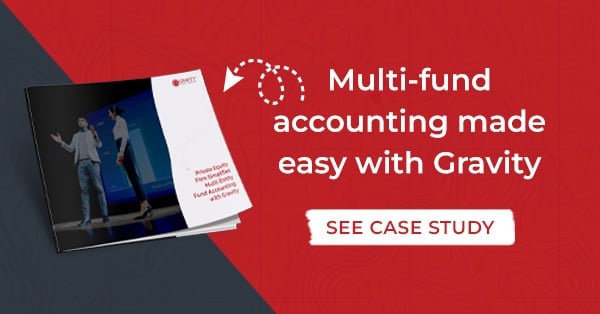How to improve private equity investment management

The pandemic has presented a unique opportunity for private equity firms to make their existing portfolio companies more profitable and identify new investments.
Many companies are still navigating lingering challenges of the COVID-19 pandemic, including supply chain disruptions and a lack of capital.
A recent survey by the Deloitte Center for Financial Services found the top three actions PE firms are taking to support their companies include:
- Managing inventory and cash flow (34%)
- Sharing best practices for developing digital capabilities (29%)
- Reviewing and right-sizing their business operating model (28%)
Here are three ways to improve private equity investment management to gain a competitive advantage and help your portfolio companies grow.
Identify where your portfolio companies need the most support
To find the best growth opportunities for your existing companies, you need deep insight into the financial performance of each one. That means having the ability to drill down into the granular details to answer questions like:
- Which companies would benefit most from an influx of cash?
- Which ones are struggling with inventory shortages?
- Which have been hit hardest by staffing shortages?
Without this insight, it’s impossible to determine where you can have the most impact and make data-driven investment management decisions.
Streamline financial reporting for your portfolio companies
Your private equity investments are thriving, and you’ve set your sights on continued growth. However, to borrow enough capital for a leveraged buyout, you need to show the additional debt won’t cause your firm to violate its existing loan covenant.
To compile the report you need to secure the funding, you have to track down data from three dozen of your companies and manually consolidate it into a single report. Several of those companies are overseas, so you have to find the current exchange rates and convert those amounts into USD.
By the time you have a full picture of your firm’s assets and liabilities and the capital to invest, another firm has seized the opportunity.
This is a significant limitation of using small business accounting software. Fortunately, it’s easy to solve this problem with multi-company accounting software that allows you to generate consolidated reports in a single database.
You can see a high-level overview of your firm’s performance and provide that information to banks or limited partners to justify future funding.
Make financial reporting accessible to all stakeholders
Amid uncertain times and the expansion of the SEC’s definition of accredited investors, more institutions and retailers are exploring private equity investing.
In 2020, 66% of institutional investors invested in private equity, up from 57% in 2016, according to Deloitte. Large capital distributions to limited partners are also driving re-investments. And according to research by Phoenix MI, one of the most important factors for private equity investors is to have reports that are easy to understand.
To make the best investment management decisions, they need to be able to see gains and losses across different types of investments and accounts. And they want that information to be personalized for them.
Limited partners in a private equity firm, for example, may be satisfied with a picture of the firm's performance as a whole — capital raised, capital available for new investments, an estimated size of the firm's portfolio. Management might want information on a more granular level, including cash flow and CapEx for each portfolio company and total assets.
An easy-to-read investment management dashboard builds transparency and loyalty among limited partners and other key stakeholders, making them more likely to continue investing.
Simplify investment management with multi-company accounting software
The right accounting solution makes it easier to monitor dozens of portfolio companies while maintaining a high-level overview of your firm’s performance and providing the most relevant information to every stakeholder.
Gravity’s leading multi-company accounting software is built on the Microsoft Power Platform, which uses Microsoft Power BI to create user-friendly dashboards that allow investment firms to cater to investors at varying degrees of financial literacy.
With Gravity’s investment management, you can treat each company in your portfolio as an independent entity without having to maintain a separate database for each.
Gravity also offers an investment subledger to track private investments, including how much your firm has invested in each company, the dividend, and the performance. If you’re investing internationally, you can record unrealized gains and losses in current exchange rates.
Gravity features consolidated reporting with drill-down capabilities. It’s easy to personalize the dashboards for specific stakeholders so they can easily find the information they need to make the best private equity investing decisions.
It integrates seamlessly with Microsoft Excel, allowing for elegant presentation to investors who would prefer to view their monthly report without logging in to a software system.
The software also integrates with Microsoft Power Automate so private equity stakeholders can approve investments anywhere simply by opening their email inbox.
Whether your firm is a holding company, a private equity firm, family office or a hedge or mutual fund, Gravity is the right choice for investment management and investor reporting.
See how you can increase profits and drive future private equity investments. Schedule an online demo today.
Gravity Software
Better. Smarter. Accounting.


